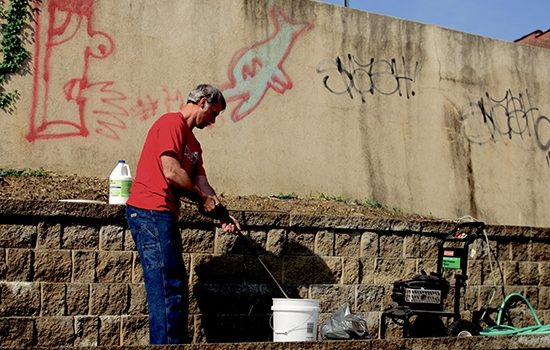Churches composed primarily of first-generation immigrants to the United States often face obstacles—linguistic, financial and cultural—in terms of fitting into an Anglo-dominated society. But they may possess a strategic advantage in fulfilling Christ's Great Commission.
"God has put people next door to us who can reach back home with the gospel in ways we cannot," said Tom Billings, executive director of Union Baptist Association, serving the Houston area.
Expatriates have connections to their homelands and share a common culture, language and background that gives them a head start in building relationships and sharing the gospel, some pastors of non-Anglo congregations agreed.
"We don't have the same barriers to cross. It's easier to reach out to people," said Sanjay Purushotham, pastor of Asian Indian Baptist Fellowship in Carrollton.
The Carrollton church supports three mission pastors serving distinct ethnic groups in different parts of India. Each pastor served three to five years at Asian Indian Baptist Fellowship while studying at Dallas Baptist University.
Asian Indian Baptist Fellowship also supports the Kapaar Kachoung Orphanage and educational ministry in Manipur, India. Six staff members at the orphanage care for 40 children who lost their parents due to tribal, ethnic and religious conflicts or to diseases such as AIDS.
Strong ties to a homeland and a sense of stewardship motivate some first-generation American Christians to share the gospel with people in their country of origin.
"I am a beneficiary of the American missionary movement," said Ernest Howard Dagohoy, pastor of First Philippine Baptist Church in Houston.
He noted his parents were converted to Christianity through the efforts of American Baptist missionaries, and he was named in their honor.
Dagohoy noted many of his church members share his desire to "give back" by ministering in the country where they were born and where many still have family.
"We have a sense we have not just been sent here (to the United States) to seek greener pastures, but we have been sent here to be missionaries. It's payback time for us," he said.
John Nguyen agrees. Nguyen, pastor of Vietnamese Baptist Church in Garland, became a Christian in South Vietnam thanks to the witness of missionaries there.
He later reconnected with some of the same missionaries who discipled him in Vietnam during the two months he spent at a Fort Chaffee, Ark., refugee camp after he fled his homeland, and they helped him resettle in the United States.
Nguyen, president of the National Vietnamese Baptist Fellowship and the Vietnamese Baptist Fellowship of Texas, has led his congregation not only to become involved in missions locally and in Vietnam, but also in other cultures.
The church supports missions work in Vietnam, Cambodia, Malaysia and Taiwan, and every two years, church members participate in a mission trip. Last year, some church members served in Europe.
"We care about Vietnam because it is where we came from. But our concern for people outside the United States is not just limited to Vietnam. It's all over the world," Nguyen said.
Dagohoy voiced a similar sentiment. His congregation has sent small groups to Honduras and Brazil as part of a mission project spearheaded by a Christian radio station in Houston.
Every two years, the church sponsors a major mission trip to the Philippines. Last summer, about 40 members of First Philippine Baptist Church—one-third of the congregation—spent a week building houses in Manila and participating in a pastors' conference, treating 200 patients at a free medical clinic and feeding more than 100 impoverished children in Biga, in Cavite province.
The Baptist General Convention of Texas helped facilitate those efforts and similar ones through its Intercultural Strategic Partners Initiative. A seven-member board of intercultural pastors governs the program, which provides seed money to help ethnic churches develop international ministries using the connections and cultural expertise they have in regard to their homelands.
One recent recipient is Ideal Family Outreach, a ministry of African Evangelical Baptist Church in Grand Prairie. The church established Ideal Family Outreach in 2007 as a separately incorporated entity to strengthen local families and work particularly with adoptive and foster children in Texas.
Last year, Ideal Family Outreach entered into a partnership with the Society for Youth Development and Orphaned Children in Nigeria. So far, the program has provided school supplies to 30 orphaned and vulnerable children and launched a Kids' Club, monthly support for 10 widows, a grinding machine to help 10 women living with HIV/AIDS support themselves and their families, and equipment for a vocational training center.
"Through SYDOC, we want to meet the physical needs of people in order to reach them with the gospel of Jesus Christ," said Johnson Omoni, pastor of African Evangelical Baptist Church. "We have a responsibility for our own country back in Nigeria."


